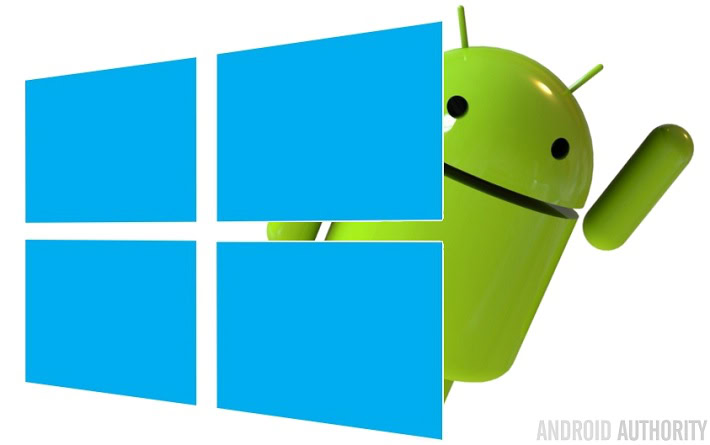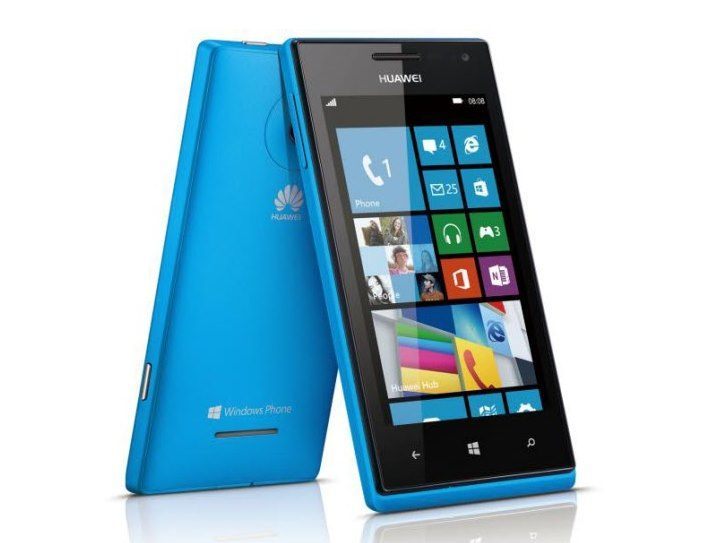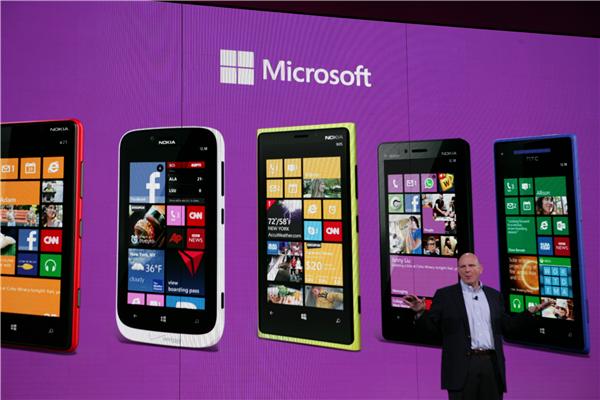Affiliate links on Android Authority may earn us a commission. Learn more.
Huawei's harsh words about Windows Phone are indicative of the problems plaguing the OS

Here in Japan, you might be forgiven for forgetting Microsoft exists outside the PC industry. The Xbox One has released to a career-ending deadend, a single Windows Phone 7 device was released, and Windows Phone 8 has been ignored entirely.
Elsewhere in the world, Microsoft has tried a bit harder. Primarily thanks to Nokia’s handsets (its mobile division now part of MS), Windows Phone has been steadily maintaining the 3.6% market share it arguably repossessed from Blackberry.
Suffice to say, outside of the Microsoft and Nokia fan communities, general consumer interest in Windows Phone is almost non-existent. Arguably the biggest news that hit the entire year from a non-Nokia OEM was HTC’s rehash of the One M8, this time running WP8. It offered nothing new per se, but was seen as a huge breakthrough for those seeking a premium product in the Microsoft market.
Huawei, no stranger to controversy these days, has just created another, though admittedly this one is less likely to tick off Android users. In a recent interview, Joe Kelly, Head of International Media Affairs, has put forth a rather bold and blistering evaluation of the Microsoft mobile market:
“We didn’t make any money in Windows Phone. Nobody made any money in Windows Phone.”
Considering that HUAWEI is ranked the world’s third largest in mobile phone sales, that is an all-together damning statement.

What went wrong?
So, why has Windows Phone failed to catch on so far? Let’s consider a few ideas:
1. Windows Phone has consistently been playing catch up to both Android and iOS. The 8.1 update, released many months after the desktop variant, was seen as fantastic in no small part, because it introduced things such as a drop-down notification shade, user-customizable backgrounds, and a voice assistant. Android has offered these for ages now, and even Apple wised up to the benefit of easy notification choices with iOS 5 back in 2011. Simply put, Windows Phone is not only two steps behind, but its major accomplishments continue to be elements that are basic core features of competitors’ offerings.
Windows Phone still has a lack of top-tier applications
2. Windows Phone has a lack of top-tier applications. While things have definitely improved in the past couple of years, just five minutes browsing in Microsoft’s mobile store will provide a laundry list of grievances stemming from apps not available on the platform. Whereas Blackberry is aware of its situation and has included sideloading functionality for Android apps, this simply doesn’t exist with WP8. Games in particular are just a barren wasteland: sure many of the the high budget, high profile offerings can be had, but indy-anything? Keep dreaming.
3. Microsoft has essentially pulled a “Nintendo” and alienated 3rd party (OEM) support. Ask anyone who used to be a Mario maniac why they don’t own a Wii U, for example, and chances are it’s not a lack of love, it’s a result of horrible 3rd party software. Nintendo consoles sell for Nintendo games, and third party manufacturers know this and don’t want to commit resources to developing a product that won’t sell. Likewise, Microsoft’s partnership with Nokia basically ensured that not only were former Nokia fans were angered (assuming they were hoping for a “defection” to Android), but so too were the other OEMs. Why should Samsung make a new Windows Phone when Nokia will have all the attention and support? Why does HUAWEI need to try and release a budget product when Nokia has flooded the WP8 market with them? The fact that Microsoft is now making the Lumia brand internally is arguably the last straw for any third party company that might have thought about creating hardware in the future.

4. Microsoft’s Windows 8 platform saw questionable decisions and promotion from the start. The horribly confusing Windows RT was bullishly defended by Steve Balmer and Co. despite the fact that OEMs dropped it almost immediately, and even Microsoft itself has seemingly given up, following the release of the Surface 2 RT last year. Windows Phone 8 was equally problematic: how was it different from Windows 8 or RT? Which applications were/weren’t compatible? Why did Microsoft opt to ban EVERY single Windows Phone 7 device from software upgrade eligibility? Sure tech fans and MS supporters would have the answers, but to the general public, already caught up with iOS and Android? Too confusing, too little, and too late.
Microsoft's single largest advantage is lost entirely
5. Microsoft has always had a trump card up its proverbial sleeve with its Office suite. This expensive proposition has gradually been delegitimized over time, at least as far as home user interests go. Apple has its own productive suite, Google offers several, and countless third parties have their own offerings, many of which can be had for absolutely nothing. And the biggest catch? These programs are all compatible with MS Office files. Microsoft itself has finally come to terms with the competition and released Office for iOS and Android, and then it has basically made it free for home users. The single biggest advantage Windows Phone may have had to productivity-minded casual consumers is therefore lost entirely.
Not all is lost
With all this said and done, the demise of Windows Mobile is in no way assured. Microsoft has a new CEO who has very different ideas than his predecessor. The company intends to alleviate all of the confusion associated with Windows Phone in the next incarnation. It has the capacity to make devices internally thus eliminating the need for third party OEM support. It knows what it’s done wrong and can see what the competition is offering.
If Microsoft can fix some, half, or even all the problems that plague its platform, there is no reason as to why it couldn’t be a success in the future. Many phone carriers are interested in expanding their product lines to prevent total domination by Apple/Google, Microsoft has legions of dedicated supporters, and Windows Phone in and of itself, isn’t actually bad.
This last point in particular is worth stressing. It’s easy to look down upon the underdog because of its small presence, but to write it off entirely can be a mistake. I have personally used Windows Phone devices for several months at a time, and found certain elements of it to be refreshing. The Live Tiles are very well though out, the minimalistic interface and design works extremely well, the dedicated camera button typically found on the hardware is a great idea. Heck, even then Bing lock screen is interesting. The real challenge Microsoft has is not how to “fix” Windows Phone, as it’s not exactly broken, it’s how to make people care about it.
We welcome any discussion and debate on this topic in the comments section. Have you owned a Windows Phone device? Did you like it? Hate it?